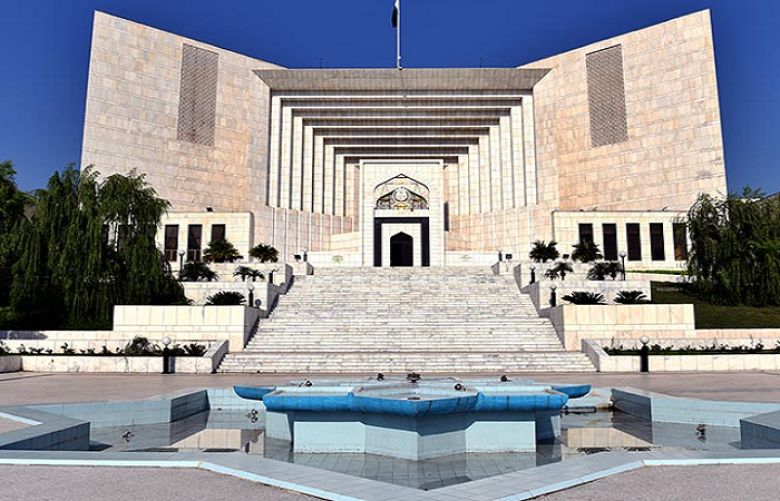The Supreme Court of Pakistan overturned the lifetime disqualification for lawmakers, ruling that the period of disqualification cannot exceed five years.
In this regard, the top court issued a written verdict comprising 30 pages over petitions asking the apex court to determine whether the disqualification period is a lifetime or five years.
A seven-member larger bench comprising Chief Justice of Pakistan (CJP) Qazi Faez Isa, Justice Syed Mansoor Ali Shah, Justice Yahya Afridi, Justice Aminuddin Khan, Justice Jamal Khan Mandokhail, Justice Muhammad Ali Mazhar, and Justice Musarrat Hilali heard the case.
The decision, which also includes an additional note by Justice Mansoor Ali Shah and a dissenting note by Justice Yahya Afridi, addresses the case of Samiullah Baloch, whose lifetime disqualification has been abolished.
Chief Justice Isa highlighted that the imposition of lifelong disqualification, stemming from Article 62 (1) F, is incompatible with fundamental rights and contradicts the democratic principles of the nation.
He pointed out that the amendment to the Election Act mandates a maximum disqualification period of five years, emphasizing the need for alignment with constitutional provisions.
Furthermore, the judgment shed light on the absence of clarity within Article 62-1F regarding the authority responsible for making disqualification declarations, as well as the lack of procedural guidelines for such cases.
This ambiguity, the Court argued, undermines the fairness and transparency of the electoral process.
The decision also scrutinised the historical context behind the introduction of lifelong disqualification during Zia-ul-Haq's regime, suggesting that it was a deviation from democratic norms and an infringement on citizens' right to participate in elections.
Dissenting note
Notably, former judge Umar Atta Bandial's role in the Samiullah Baloch case was questioned, with the judgment highlighting his reversal of decisions in multiple instances.
Justice Afridi, in his dissenting note, expressed disagreement with the Court's decision to abolish lifelong disqualification, asserting that disqualification under Article 62-1F remains valid until revoked by a Court of Law.
This decision marks a significant step towards ensuring fair and inclusive political participation in Pakistan. It signals a departure from draconian measures of the past, reaffirming the judiciary's commitment to upholding democratic principles and protecting their rights.







